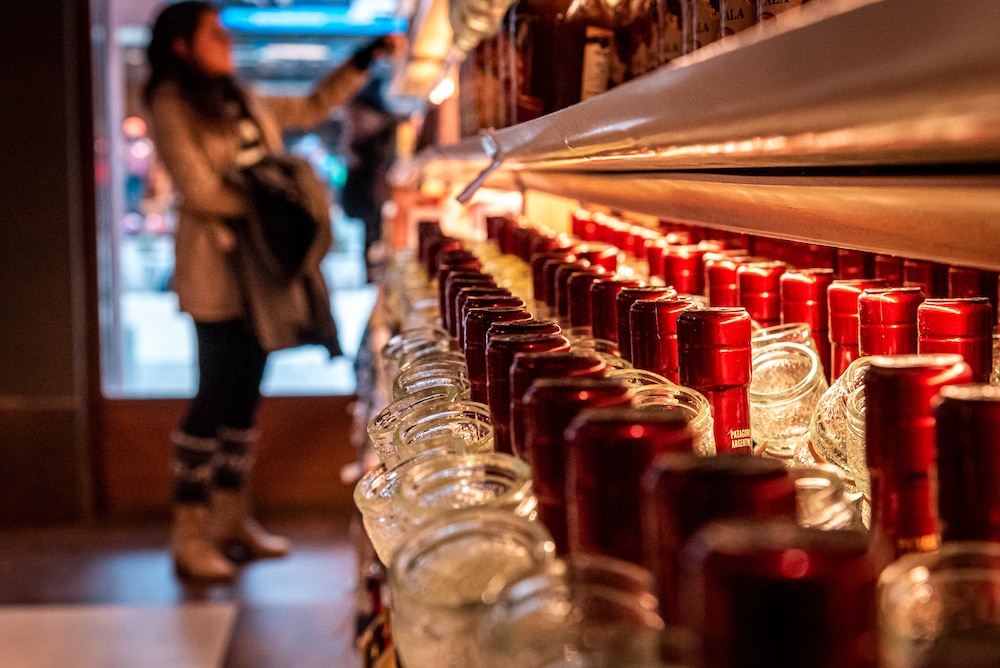
Liquor Stores Remove Russian Alcohol From Shelves
Hannah Zwemer ❘
Liquor stores across the country are pulling Russian brands from their shelves in an act of solidarity with the people of Ukraine.
Read More ⟶

by Nathan Yerby | ❘
On November 18, the South Dakota Department of Social Services launched a multimedia advertising campaign against methamphetamine, a dangerous and illegal drug which has destroyed the lives of thousands of South Dakota residents. The South Dakota Meth Prevention and Awareness Campaign presents the state’s methamphetamine crisis as a community problem and calls for everyone to work together to solve it. The slogan for the campaign is “Meth. We’re on it.” Perhaps unsurprisingly, these four words instantly prompted a torrent of mockery on social media.
Some commentators on Twitter wondered if South Dakota was trying to advertise meth. Others called the slogan a joke. Even a famous marketing professor, Bill Pearce of UC Berkeley, weighed into the fray, describing the slogan as an example of “poor strategy and poor execution.” The promotional materials for the campaign feature ordinary South Dakotans – an elderly farmer, some high school football players, a man in a coffee shop – alongside the tagline “Meth. I’m on it.” Some interpreted the advertisements to mean that the individuals actually use meth. The domain name of the campaign’s website, onmeth.com, certainly doesn’t clear up any confusion.
Paid Advertising. We receive advertising fees from purchases through the BetterHelp links below.
Online Addiction Counseling
Get professional help from an online addiction and mental health counselor from BetterHelp.
Start receiving support via phone, video, or live-chat.
According to the most recent data from the CDC, methamphetamine claims more lives in South Dakota than any other illegal drug. At least thirteen people in South Dakota died as a result of methamphetamine last year. Methamphetamine has burdened many more South Dakotans with debilitating substance use disorders. As in all other states, most of South Dakota’s meth supply originates in Mexico. In 2018, police in South Dakota arrested 3,684 people for possessing, transporting, or distributing methamphetamine, and confiscated about 100 lb. of the drug. Cities tend to be the main targets for drug traffickers. Last year, South Dakota police seized a total of 24 lb. of meth in the Rapid City area, over 20 lb. in Sioux Falls, and almost 1 lb. in Pierre, the state capital. For reference, only 150 milligrams of meth (or 0.0003 lb.) can cause a fatal overdose.
After “Meth. We’re on it” appeared on billboards and televisions in South Dakota and ignited a national conversation about harebrained marketing, Governor Kristi Noem expressed her support for the campaign. “Hey Twitter, the whole point of this ad campaign is to raise awareness. So I think that’s working…” she tweeted on the 18th. The Governor later described the campaign as “a bold, innovative effort like the nation has never before seen.”
Earlier this year, Noem vowed to reduce the prevalence of meth in her state. She has since requested over $1 million from the federal government to fund addiction prevention programs and supplement federal assistance her state already receives to combat meth trafficking. The domain name notwithstanding, onmeth.com could be a helpful resource for South Dakotans living with a meth use disorder. The website features a directory of treatment centers and support groups for drug addiction.
The South Dakota Department of Social Services hired Broadhead Co., a Minneapolis-based media firm, to design the anti-meth campaign. The state agreed to pay the company $1.4 million, a price tag which generated substantial criticism on social media. Nevertheless, Social Services Secretary Laurie Gill has insisted the cost is worthwhile for a campaign which stands out from prior anti-drug initiatives.
In defense of its work, Broadhead explained that its vision was to change the culture, not simply to tell meth addicts to get sober. Several professionals in addiction treatment agreed that engaging the whole community is the best way to raise awareness and fight the addiction crisis, so the campaign might have a positive impact. Meth addiction is “a dangerous disease,” said Carol Regier, the director of Keystone Treatment Center in Canton, South Dakota. “I think it’s very good that the state is going to take some action about it.”
Last Updated:
Author
Nathan Yerby

Nathan Yerby is a writer and researcher. He is a graduate of the University of Central Florida.
Sources